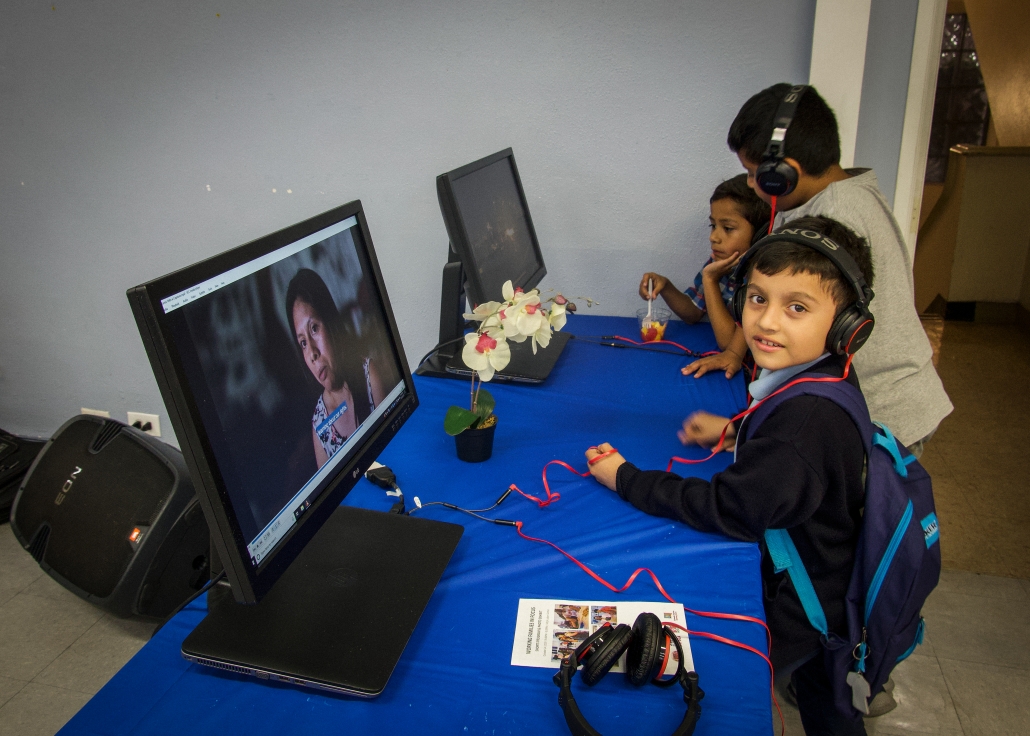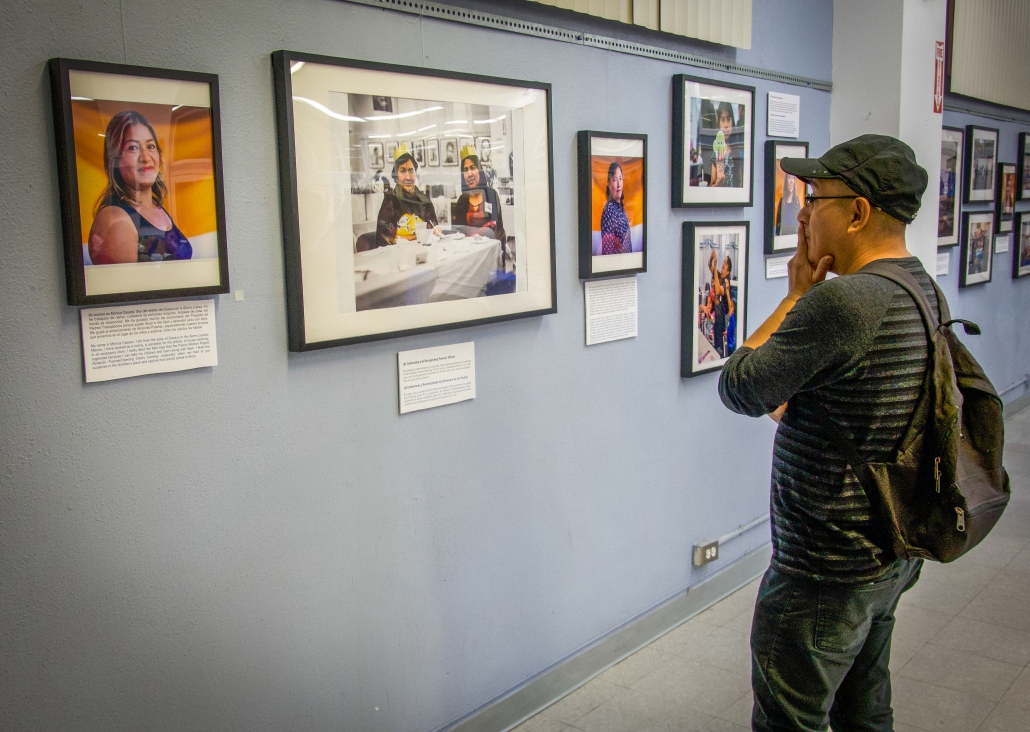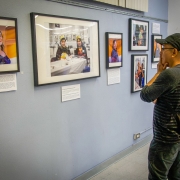 By Janna Shadduck-Hernández, Project Director, and Marisol Granillo Arce, Graduate Student Researcher
By Janna Shadduck-Hernández, Project Director, and Marisol Granillo Arce, Graduate Student Researcher
UCLA Labor Center
On October 24, 2019, filmmakers, photographers, poets, and musicians of color presented their original works on the resilience and power of immigrant working families in Los Angeles. The exhibit, including photos and short film presentations, is an initiative of the UCLA Labor Center’s Parent Worker Project, an applied research project that lifts up low-wage working parents as experts on their children’s education and communities.
Working Families in Focus is the first photo exhibit and film shorts program directed by Los Angeles artists of color to capture the lives of janitors, garment and domestic workers at their unions or worker centers, along with their children. Wil Prada, UCLA alum, filmmaker, and photographer, curated the exhibit highlighting nine themes: 1) The Parent Worker Project, 2) Unions and Worker Centers, 3) Tutoring, 4) Accessing Institutions of Higher Learning: A Public University Belongs to the Public, 5) Working-Class Parents Care about Children’s Education, 6) What Motivates Me Is My Children, 7) Parents as First Teachers, 8) Celebrating and Recognizing Parents’ Efforts, and 9) Connecting Communities. Parents, children, workers, artists, musicians, and filmmakers came together to share their common experiences and give visibility and dignity to the contributions of low-wage working families.
The UCLA Labor Center obtained a grant in 2014 from the W. K. Kellogg Foundation for an initiative to focus on early education activities with local janitors and their children through Building Skills Partnership and SEIU-United Service Workers West. We documented the project’s success in “Janitors are Parents Too! Promoting Parent Advocacy in the Labor Movement,” a chapter in the Beacon Press publication Lift Us Up, Don’t Push Us Out!: Voices from the Front Lines of the Educational Justice Movement. As a result, the W. K. Kellogg Foundation renewed its commitment to support similar programming with low-wage garment and domestic workers and their children. Using a train-the-trainer model, the second phase of the project trained parent workers to confidently talk with their peers about navigating the school system and accessing community resources such as libraries, museums, financial institutions, and specialized programs, putting parents at the center of current public education reform and leadership advocacy efforts.
As a compliment to the project, the team organized a formal tutoring project through which selected UCLA undergraduate students received scholarships to tutor garment and domestic workers’ children while the children’s parents participated in adult education classes and training sessions.
The Working Families in Focus exhibit took place at the UCLA Labor Center’s downtown community site and was sponsored by the UCLA Institute for Research on Labor and Employment, Los Angeles Garment Worker Center, IDEPSCA-Mujeres en Acción, Building Skills Partnership, and the UCLA Center for Mexican Studies. Please come to the UCLA Labor Center at 675 S. Park View Street to view this powerful exhibit, or contact Janna Shadduck-Hernández at jshernandez@irle.ucla.edu for further information.

Janna Shadduck-Hernández, Ed.D. is a project director at the UCLA Labor Center and teaches for the UCLA labor studies major and in the Graduate School of Education and Information Studies. Her research and teaching focus on developing culturally relevant, participatory educational models with first- and second-generation university students, community members, and youth. Her research and policy work also examine the organizing efforts of low-wage immigrant workers to combat labor and workplace violations.
Marisol Granillo Arce is a graduate student researcher with the Labor Center’s Parent Worker project and a UCLA MSW and MPH candidate. She is also a trained facilitator of the Abriendo Puertas/Opening Doors bilingual curriculum to promote early childhood parent engagement to advance the long-term academic success of low-income K-12 students.


